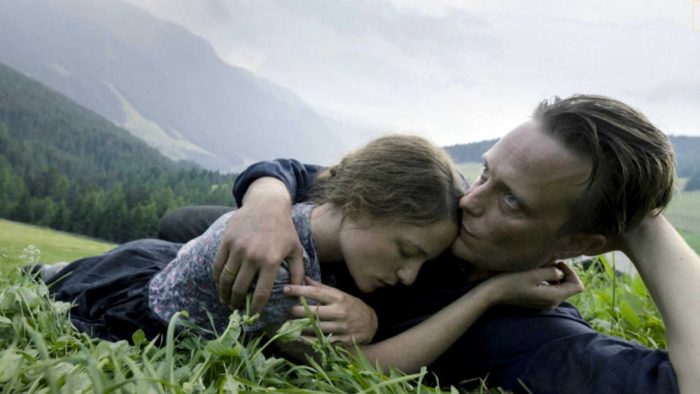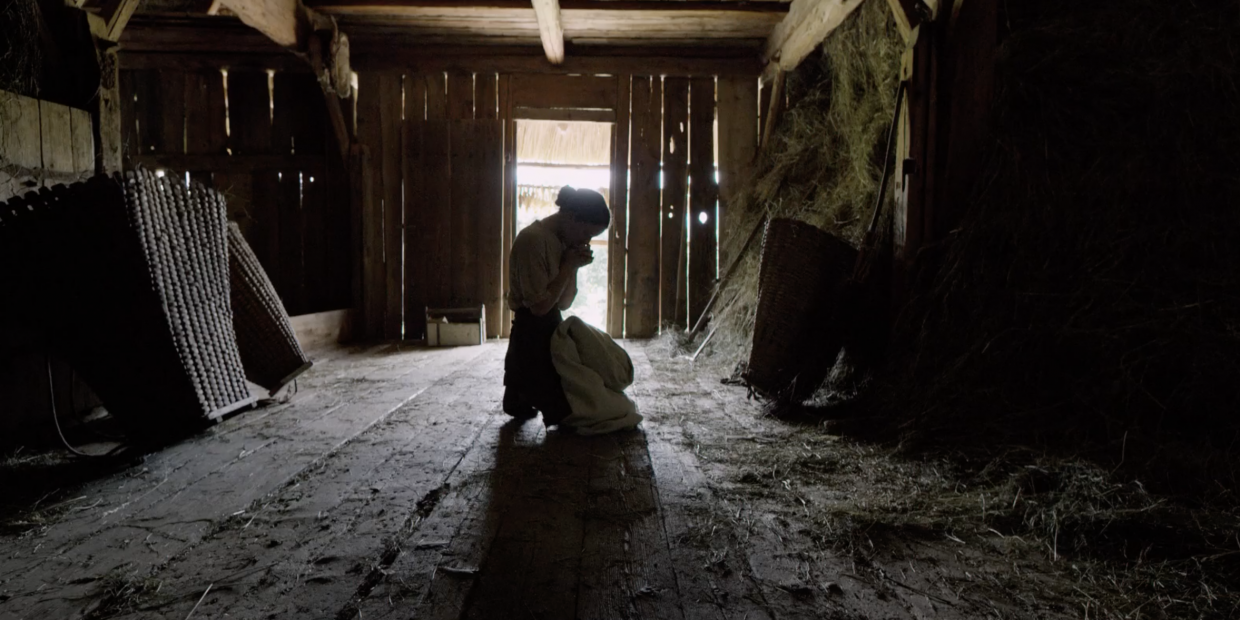Director: Terrence Malick
London Film Festival 2019 review
Though the metaphysical cinema of Terrence Malick has often suggested a God’s-eye view of the universe, the legendary director has rarely granted his own characters such a transcendent sense of remove from the periods, places, cultures, and chaos into which they were born.
In his recent string of modern day dramas, for instance, Malick’s alienated leads are engulfed in a seductive reality of pool parties, private planes, and numbing sensory excess, channelling mankind’s continuing trajectory away from the natural world and the needs of the soul. And though his new opus, A Hidden Life, sends us back to an existence of relative simplicity and grace in the rural hills of 1940s Austria, it isn’t long before the cruelty of the outside world begins working its way into Malick’s latest historical Eden.
“A man may do wrong and he can’t get out of it to make his life clear,” observes peasant farmer turned conscientious objector Franz Jägerstätter (August Diehl) as he assesses the malignant ideology that has spread through Western Europe. It’s a line that comes fairly late in A Hidden Life’s near 3-hour runtime, but its perspective on corruption echoes the naïve longing for isolation expressed in Franz’s opening voiceover before his extraordinary test of faith begins.
Just as 2015’s Knight of Cups and 2017’s Song to Song offered a bombardment of stylized and opulent imagery to reflect an era of sterile hedonism, A Hidden Life alludes to the culture of its own period by incorporating footage of Nazi propaganda. At first, however, these clips seem a million miles away from the quiet life that Franz leads with his wife Frani (Valerie Pachner) and their three daughters in the small village of St. Radegund.

Indeed, the presence of Hitler’s regime seems to only encroach gradually, first through the sound of German planes flying overhead, then later when Franz is called upon for a few months of basic military training. But by the time the village mayor delivers a drunken, racist rant about the need to restore their nation to its former glory, it’s plain to see that fascism has come to their community.
Given the nostalgia that seemingly runs through the early passages of Malick’s film, it’s tempting to regard the mayor’s hateful tirade as a moment of necessary autocritique, acknowledging the slippery slope we traverse whenever we pine for the good old days. That being said, Malick has never been one to avert his eyes from the beauty of the world, and so A Hidden Life serves as another mesmerising showcase for the director’s distinct brand of aesthetic bliss.
Once again, the formally daring filmmaker offers a series of stunningly pretty images in a constant state of flux, observing life as a continuous stream of experience rather than a sequence of narrative pivot points. In its intuitive editing and awe-inspiring footage of the natural landscape, A Hidden Life captures both the fleeting and the eternal in a manner that lends humbling context to the struggles of Franz and Frani.
A painful distance develops between the two leads after Franz is imprisoned for refusing to fight for the Third Reich, coupled with an ongoing sense of moral and spiritual contemplation as the pair separately endure the various injustices of a culture and a nation that’s turned against them. Though Franz in particular is forced to suffer a gruelling series of moral tests and brutal beatings for the sake of his ironclad values, his journey also captures the clarifying effects of solitude and hardship, and by the time he reunites with Frani at the film’s agonising climax, he’s never seemed more committed to his ideals, nor closer to his god.
Ultimately, Franz’s refusal to abandon his principles is shown to be an act of remarkable fortitude but also rare simplicity, cutting through the clamour of his immediate fears and desires through sheer force of will. The conclusion reached by Malick’s masterful work – that one should do what is right whether history notices or not – is similarly free of clutter, though it’s a little ironic that such an endorsement of quiet humility should come from a director who’s so frequently made the rest of cinema look small by comparison.





